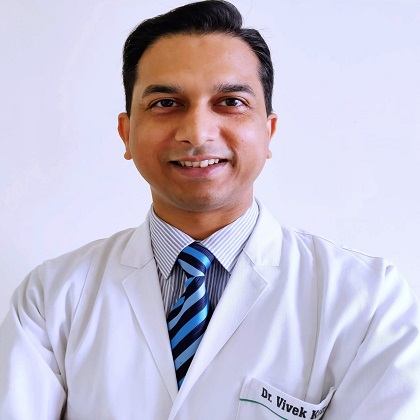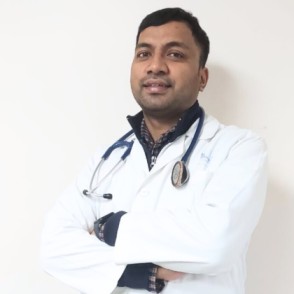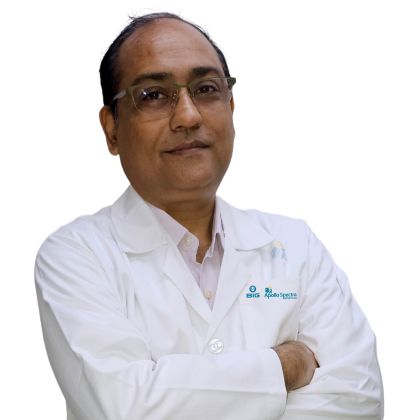Cardiology

What is cardiology?
Cardiology is a medical branch concerned with diseases and disorders of the heart. It is related to the diagnosis and treatment of various conditions like congenital heart defects, coronary artery disease, rhythm disorders, heart failure, and valvular heart disease. The subspecialty of cardiology covers cardiac electrophysiology, non-interventional cardiology, interventional cardiology, and nuclear cardiology.
Cardiology at Big Apollo Spectra: The Best Heart Hospital in Patna
Heart diseases like heart attacks, coronary artery diseases, congestive heart failure, congenital heart disease, and valvular heart disease are the major causes of death among males and females across the globe. At Big Apollo Spectra, India’s most renowned hospital and known for having the best cardiologist in Patna, we specialise in treating heart disorders and ailments, with an assured Medicare that fulfils all your cardiological Medicare needs.
With professional and highly specialised experts, our cardiology team at Big Apollo Spectra, which is one of the best hospitals in Patna, has made pioneering developments in the field of cardiology treatments and procedures at an incredible pace with proven success over the past few years.
Risk Factors Involved in Causing Cardiological Disorders
You are more likely to be affected by cardiological disorders or diseases due to:
- High blood pressure (hypertension)
- High cholesterol (dyslipidemia)
- Use of tobacco
- Type 2 diabetes
- family history of heart disease
- Less physical activity
- Overweight or obese
- a diet rich in sodium, sugar, and fat.
- Excessive alcohol
- wrong prescription or recreational drugs
- Preeclampsia or toxaemia
- Stress
- Gestational diabetes
- Chronic inflammatory or autoimmune disorders
- Chronic kidney disease
Cardiological disorder symptoms to be aware of
Senior citizens and females may have more subtle symptoms. If you find any of the following symptoms, search for the best cardiologist near me and visit Big Apollo Spectra Hospital.
Complications:
Complications of heart disease include:
- Heart failure: It is one of the top complications in cardiology. Heart failure happens when the heart is unable to pump the necessary blood to meet the body’s requirements.
- Heart attack: A heart attack occurs when there is a blood clot in the vessel supplying the heart.
- Stroke: The risks that cause heart disease may also result in ischemic stroke. This kind of stroke occurs when there is a blockage or narrow path in the arteries that connect to the brain.
- Aneurysm: an aneurysm is an inflammation in the artery wall; if it bursts, there could be life-threatening bleeding.
- Peripheral artery disease: In this scenario, the hands and legs usually don't get sufficient blood. This results in symptoms, especially leg pain while walking (claudication).
- Sudden cardiac arrest: Sudden cardiac arrest is the sudden stopping of heart function. It is caused by a disorder in the heart’s electrical system. Sudden cardiac arrest is a medical complication that, if not treated immediately, results in cardiac death.
For any of the above complications, get expert advice from the best cardiologist in Patna. With numerous heart specialists in Patna, Big Apollo Spectra tops the list when you search for a heart clinic near me. So don’t wait to get your appointment for a cardiology consultation.
Diagnosis
There are various tests used to diagnose heart disorders and diseases. Apart from blood tests and chest x-rays, here are a few tests to diagnose heart disease. At Big Apollo Spectra, the best heart hospital in Patna, we not only offer consultation and treatment but also help you diagnose your disease to provide the best Medicare for all your health complications.
- Electrocardiogram (ECG or EKG): An ECG is a fast and painless diagnosis that records the heart’s electrical signals. It also detects if the heart is beating too fast or too slowly.
- Holter monitoring: A Holter monitor is a portable ECG system that’s put on for a day or more to analyse the heart’s function during the daily routine. This test can diagnose irregular heartbeats that aren’t traced during the usual ECG examination.
- Echocardiogram: It is a noninvasive diagnosis that uses sound waves to frame detailed images of the heart while it is functioning. It shows the way the blood flows through the heart and heart valves. An echocardiogram can help determine whether the valve is narrow or leaking.
- Exercise tests or stress tests: These are tests that involve walking over a treadmill or driving a stationary bike when the heart is analysed. Exercise tests help monitor how the heart responds during physical activity and whether there is a sign of heart disease during exercise.
- Coronary angiography: This test detects blockages in the heart's arteries. A lengthy, slim, and flexible tube (catheter) is inserted in the blood vessel, generally in the groyne or wrist, and adjusted towards the heart. The dye flows via the catheter towards the arteries in the heart. The dye helps the arteries show up more clearly in the X-ray images taken during the examination.
Treatments
The treatment choices differ based on the kind of heart disease and the individual, but certain common strategies include making lifestyle changes, taking medicines, and getting surgery. Big Apollo Spectra is the one-stop destination for patients searching for treatments from a cardiologist doctor near me.
Here are a few treatments available for cardiac ailments:
Medications
Medications prescribed by cardiologists help treat heart conditions. The major options are:
- Anticoagulants, also called blood thinners, help prevent blood clots. These include warfarin (Coumadin) and dabigatran, rivaroxaban, and apixaban, which are direct oral anticoagulants.
- Antiplatelet therapies: These are aspirins, which help prevent clots.
- Angiotensin-converting enzyme inhibitors: These medications help recover from heart failure and high blood pressure, which cause the blood vessels to expand. Lisinopril is an example.
- Angiotensin II receptor blockers: These help control blood pressure. Losartan is an example.
- Angiotensin receptor neprilysin inhibitors: These support unloading the heart and clearing the chemical pathways that weaken the heart.
- Beta-blockers: Metoprolol and other medicines in this category help lower the heart rate and reduce blood pressure. They can also help treat arrhythmias and angina.
- Calcium channel blockers: These help in reducing blood pressure and preventing arrhythmias by lowering the pumping capacity of the heart and relaxing the blood vessels.
- Cholesterol-lowering medications: statins like atorvastatin (Lipitor) and other kinds of these drugs help lower low-density lipoprotein cholesterol in a patient.
- Digitalis: Prescriptions like digoxin (Lanoxin) help increase the heart’s pumping function. They also help treat heart failure and arrhythmias.
The cardiologist will speak with the patient to finalise a suitable choice.
At times, side effects occur. If any such symptoms occur, a necessary medication review needs to be done with the consultation of a cardiologist.
Surgery
Certain heart surgeries help relieve blockages and resolve heart problems when medications are ineffective. We host the best heart specialist in Patna to perform these surgeries and provide the best medication for all cardiological problems.
A few common types of surgery include:
- Coronary artery bypass surgery: This helps blood flow reach the part of the heart when an artery is blocked. Coronary artery bypass grafting is one of the most common surgeries. A surgeon uses a healthy blood vessel from another body part to fix the blocked vessel.
- Coronary angioplasty: This procedure helps widen narrow or blocked coronary arteries. It is usually done along with the stent insertion, which is a wire-mesh tube that helps blood flow smoothly.
- Valve replacement or repair: A surgeon replaces the dysfunctional valve through a necessary procedure.
- Repair surgery: A surgeon can set right the disorders related to congenital heart disease, aneurysms, and other complications.
- Device implantation: pacemakers, balloon catheters, and other devices aid in regulating the heartbeat and support managing the blood flow.
Our Specialists

Cardiology

Cardiology

Cardiology

Cardiology